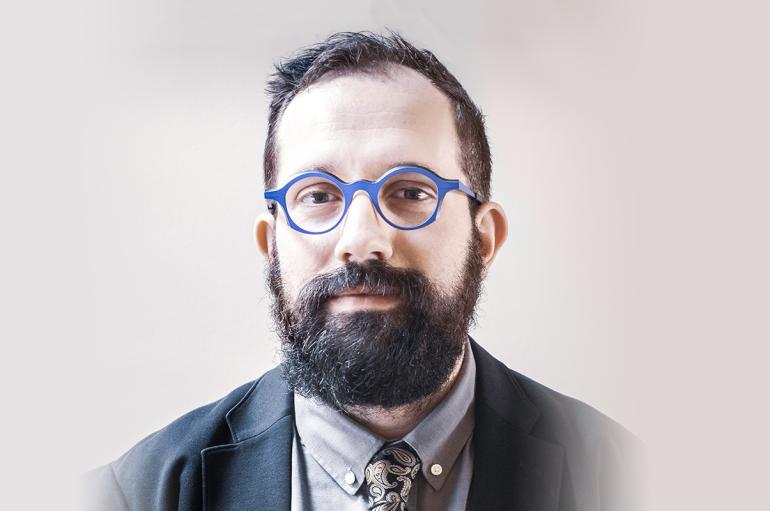
Here at the Chicago Center for Contemporary Composition, we're introducing (or re-introducing) you to members of our resident ensemble, the Grossman Ensemble. Today, we're featuring oboist Andrew Nogal. Read on to learn about Andy's love of trains, his passion for public libraries, what he's read recently, and more!
How does your art history degree show up in your career as an oboist?
Studying art history strengthened my ability to describe complex objects and phenomena. It's a writing-intensive field that requires patient attention to detail, and I utilize these skills every day when I'm untangling gnarly pieces of music and searching for the right sound and shape for a musical phrase. Being aware that political, social, and historical episodes will always influence art in some way reinforces my commitment to the creation of contemporary art, and the oboe happens to be the "medium" in which I have been most expertly trained.
Where did your love of trains begin?
I guess I've always preferred trains to cars, but I started riding long distances on trains more regularly during the height of the pandemic, when I didn't feel comfortable spending time in close quarters with strangers on airplanes. I rode Amtrak from Chicago to Boston a few months ago, and it was wonderful to arrive at my destination without the weird detached feeling and frenzied worry that I associate with flying. This country is really big! It's been humbling and fascinating to experience these great distances without the interruption of being up in the clouds.
You frequently visit different libraries around the world. What is your favorite library you’ve seen? Which library is next on your list?
Actually, one of my dearest friends and I are in the middle of a project to visit every public library in our home state of Illinois! We've seen about 425 so far and have about 400 left. It would be hard for me to pick a favorite, but Bensenville, Bucknell, Mount Carroll, Streamwood, and Ashton have libraries that stand out to me for being architecturally unique, appealingly fanciful, or particularly well-adapted to the needs of the community. The branches of the Chicago Public Library are, without exception, impressive and busy! Little Italy has one of our newer branch libraries, and it's a gorgeous facility. It's been equally thrilling to see public libraries thriving in tiny, rural towns where there's little, if any, commercial activity left.
If the oboe were a culinary dish, what would it be?
I think the oboe is a rich, complex cup of coffee. Tasting notes: grapefruit, ginger, brown sugar, semi-sweet chocolate, sandalwood.
What has been your most memorable moment from your time in the Grossman Ensemble?
I really enjoyed premiering New Examples of Confusion by our pianist, Daniel Pesca. Daniel and I have played chamber music (Schumann, Poulenc, Wolpe, Gradone) together since 2010. He wrote a gorgeous piece that showcases the players' refined interaction with one another: dovetailing ribbons of poetic lyricism rather than whizbang pyrotechnic virtuosity, which the oboe doesn't do particularly well, anyway!
Any book recommendations?
Three books that left an especially deep impression on me are H is for Hawk by Helen Macdonald, Absalom, Absalom! by William Faulkner, and The Return of the Native by Thomas Hardy. It occurs to me that I haven't exactly been reading feel-good literature...
What has being in the Grossman Ensemble meant to you?
This has become an absolutely vital creative and professional home for me. Like most musicians, I'm a freelancer, which requires putting up with a high degree of unpredictability in every sense. It can be daunting and totally alienating. Pursuing a common creative goal alongside the Grossman Ensemble's stellar musicians (and composers who are up for an unusually collaborative adventure that plucks them, too, from isolation!) is a rare and special privilege.
